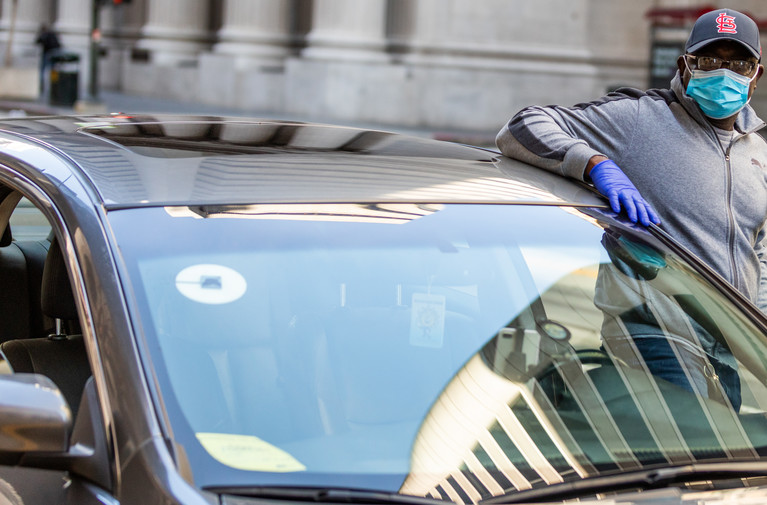By Legal Desk | August 29, 2025, CHICAGO — In a significant ruling for gig economy workers, the U.S. Court of Appeals for the 7th Circuit on Tuesday, August 26, 2025, upheld a lower court’s decision denying Uber Technologies Inc.’s motion to compel arbitration in a lawsuit brought by a driver alleging misclassification as an independent contractor. The decision allows one plaintiff’s claims to proceed in federal court, even as three other plaintiffs in the same suit must pursue individual arbitration, highlighting ongoing tensions in the classification of rideshare drivers.
The case stems from a multi-plaintiff complaint filed in the U.S. District Court for the Northern District of Illinois, where current and former Uber drivers accused the company of violating wage and hour laws by treating them as independent contractors rather than employees. This misclassification, the suit claims, deprived drivers of benefits such as minimum wage, overtime pay, and expense reimbursements. Uber sought to enforce arbitration agreements signed by the drivers, which typically require individual resolution of disputes outside of court and bar class actions.
However, the 7th Circuit panel, in an opinion authored by an unnamed judge, agreed with the district court that for one driver—whose identity was not specified in public summaries—the issue of arbitrability had already been conclusively decided in a prior state court proceeding under the doctrine of collateral estoppel. This legal principle prevents relitigation of issues already resolved in another case involving the same parties. As a result, Uber’s attempts to push this driver’s claims into arbitration were struck down, allowing the suit to move forward in court. For the other three plaintiffs, the court affirmed the need for individual arbitration, consistent with Uber’s standard agreements.
“This ruling underscores the complexities of arbitration clauses in the gig economy,” said employment law expert Sarah Thompson, a professor at Northwestern University Pritzker School of Law, in an email to reporters. “While Uber often succeeds in enforcing arbitration, exceptions like collateral estoppel can provide a pathway for drivers to have their day in court.” The decision could set a precedent for similar cases, particularly in the Midwest, where the 7th Circuit’s jurisdiction covers Illinois, Indiana, and Wisconsin—states with sizable Uber operations.
The broader context of Uber’s legal battles over driver classification has been a flashpoint in the U.S. labor landscape. Uber and similar platforms like Lyft have long classified drivers as independent contractors to avoid providing employee benefits, a practice challenged in courts nationwide. Recent developments include a January 2025 dismissal of a misclassification suit by UberBlack drivers in Pennsylvania and a $175 million settlement between Uber, Lyft, and Massachusetts over similar claims. In California, the state’s Supreme Court upheld Proposition 22 in 2024, allowing gig companies to maintain contractor status while offering limited benefits, though challenges persist.
Uber, which reported over 1.5 million active U.S. drivers as of May 2024, has faced dozens of lawsuits alleging violations of the Fair Labor Standards Act (FLSA) and state wage laws. The company’s arbitration strategy has been largely successful in other circuits; for instance, the 9th Circuit in 2018 reversed a class certification in O’Connor v. Uber, forcing individual arbitrations, and the 3rd Circuit in 2023 ruled that Uber drivers do not qualify for a Federal Arbitration Act exemption for interstate commerce workers. However, the 7th Circuit’s decision marks a rare setback for the tech giant, potentially emboldening drivers to leverage prior state rulings in federal disputes.
Attorneys for the plaintiffs, who were not immediately available for comment, argued that Uber’s control over drivers—dictating routes, ratings, and deactivation policies—renders the independent contractor label untenable. Uber spokesperson Nina Langford stated in a prepared remark, “We respect the court’s decision and will continue to defend our position that drivers are properly classified as independent contractors who value the flexibility of the platform.” The company emphasized its compliance with evolving labor regulations, including recent Department of Labor guidelines under the FLSA that tightened the test for contractor status.
Reactions on X (formerly Twitter) were swift, with labor advocates hailing the ruling as a win for worker rights. User @GigWorkersUnite posted, “Finally, a circuit court says no to Uber’s arbitration dodge! This could open doors for more drivers to fight misclassification in court.” Conversely, business groups expressed concern over potential ripple effects. The U.S. Chamber of Commerce tweeted, “Arbitration provides efficient dispute resolution; inconsistent circuit rulings undermine this for employers like Uber.”
As the case returns to the district court for further proceedings, it adds to the patchwork of rulings on gig worker status. With the U.S. Supreme Court having declined Uber-related appeals in recent years—such as a 2021 bid to avoid a Pennsylvania driver pay suit—these circuit-level decisions will likely shape the future of rideshare litigation. Analysts predict increased scrutiny under the Biden administration’s labor policies, which favor employee protections, though a potential shift in 2025 could alter the trajectory.
For drivers affected by similar issues, legal experts recommend consulting attorneys familiar with state-specific wage laws, as outcomes vary by jurisdiction. Uber continues to dominate the rideshare market with over 75% U.S. share, but this ruling serves as a reminder that its business model remains vulnerable to judicial challenges.
Follow updates on gig economy lawsuits and share your thoughts on X.
